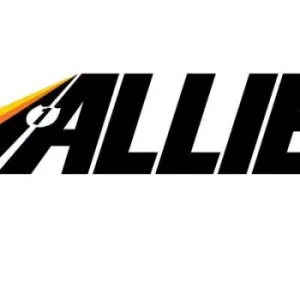We are Moving Shield
FAQs
At MovingShield, we believe in empowering our customers with knowledge to make informed decisions about their moving insurance needs. In this “Insurance Basics” section, we delve into key concepts to help you understand the world of moving insurance better.



Frequently Asked Questions
Insurance is a system of protection against loss in which an individual agrees to pay a certain premium for a guarantee that they will be compensated under stipulated conditions for any specified loss. It is essentially a contract that offers such protection.
- Insured/Assured: This refers to an individual whose property is covered by insurance against potential loss.
- Insurer: An insurer is a company that provides insurance coverage to individuals or entities, acting as an underwriter.
Valuation is NOT insurance. Valuation represents the maximum amount of liability a moving company will accept for the value of your goods in case they are damaged or lost while in their possession. Valuation is typically limited to the moving company’s own coverage and is based on the amount declared on the bill of lading, primarily determined by the weight of the entire shipment. If valuation is not chosen and paid for, the coverage amount defaults to the state or federal legal liability limits, which can range from $.10 per pound up to $0.60 per pound per article.
There are several compelling reasons to opt for insurance rather than valuation:
- With our All Risk insurance type, you enjoy Full Replacement Value coverage, meaning you will be compensated for the full replacement value of damaged or lost items. Valuation, on the other hand, pays the Actual Cash Value of items, which is the depreciated value.
- Insurance provides protection against “Acts of God” such as floods, tornadoes, lightning strikes, and more. It specifically covers the items listed on your contract at their replacement cost.
- When you purchase insurance, you receive an actual Evidence of Insurance from a leading insurance company, serving as proof of your coverage, as opposed to just a note on your Bill Of Lading when opting for valuation.
- Unlike valuation, which is purchased from the moving service provider, insurance coverage is obtained from an independent, third-party insurance company.
- Insurance can cover your household goods for up to 90 days (depending on your chosen insurance carrier) during transit or storage, even if they are being transported by a subcontracted carrier different from your original mover. Valuation does not offer this level of coverage.
- Our insurance extends coverage to Mechanical and Electrical Derangement and/or Pairs and Sets, which valuation does not typically cover.
No, your items are not automatically covered by your transportation service providers, whether it’s a moving company, mobile storage company, or a rental truck company. The basic liability coverage provided by moving companies is typically as low as $0.30 or $0.60 per pound per item, depending on whether your goods are shipped within the state or across state lines. For mobile storage or rented truck companies, this liability can be as low as $0.10 per pound per item. While some vendors offer Valuation coverage, it often doesn’t provide the same level of protection as our insurance and may even be more expensive.
Most homeowners’ insurance policies do not cover your household goods during a move. However, it’s advisable to check with your insurance agent to see if your existing homeowner/renters’ policy offers coverage for goods in transit. Ensure you obtain a written statement from your insurance company specifying the extent of coverage. Typically, your goods are covered while movers are packing in your home but not while they are in the possession of the moving company.
A deductible is the amount of money a policyholder must pay out of pocket before the insurance company will cover a claim. Policyholders choose their deductible, and the higher the deductible selected, the lower the premium cost.
In most cases, we offer several deductible levels: $250, $500, $750, $1,000, $1,500, and $3,000. The deductible you choose determines the cost of the insurance you’re seeking, and it’s a one-time deductible, not per item claimed. Select a deductible that aligns with your needs, keeping in mind that a higher deductible will result in a lower overall premium.
An Evidence of Insurance is a document that includes the information provided in your insurance application, along with the terms and conditions you’ve accepted for your insurance coverage. This document is issued by an insurance company or broker and serves as proof of your insurance coverage under specific conditions granted to the named insured. It outlines the effective date of the policy, the type of insurance coverage purchased, and the types and dollar amounts of applicable liability. Our document provides all the terms, conditions, limitations, and exclusions of the coverage bound.
Our Standard Value coverage is designed to safeguard the value of your possessions in the event of loss or damage during the move. Complying with federal mandates, our Basic Released Value Protection offers coverage at $0.60 per pound of belongings at no additional cost to you. Embracing this basic protection, our Standard Value Policy extends coverage from $10,000 to $50,000, providing an increased protection rate of $0.80 per pound. The cost of this policy is flexible, ranging from 1-5% of the total coverage amount, ensuring affordability and tailored protection for your valuable items.
Full Current Replacement Value – Valued Inventory coverage. In a nutshell, this option means that in the unfortunate event of loss or damage, your items are covered based on their current market value, allowing for new-for-old replacements. We’ll work with you to create a detailed inventory, ensuring your coverage is tailored to the value of your possessions. This comprehensive protection is ideal for high-value or sentimental items, ensuring a secure and hassle-free move.
Full Current Replacement Value – Lump Sum coverage. In simple terms, this option ensures that your belongings are covered at their current market value in case of loss or damage, allowing for new-for-old replacements. The convenience lies in a lump-sum approach, providing a straightforward and comprehensive solution without the need for a detailed itemized inventory. Ideal for those seeking simplicity and robust protection, this coverage is designed to secure your valuable and sentimental items throughout the moving process.
When you work with a moving service, you automatically receive valuation coverage. This is not moving insurance, but rather a basic coverage that movers must supply. Valuation coverage is federally mandated and is meant to protect customers in case movers damage their belongings. There are two types of valuation coverage: Released value protection:◦Provided at no extra cost.◦Movers are liable for $0.60 per pound per item. Full value protection:◦Usually provided for an additional cost of 1% of the covered items’ value.◦Movers can compensate you for the value of the item by paying for repairs, replacement or providing a cash settlement.◦Compensation for damaged items that have depreciated from their purchase value is limited to the actual cash value.◦You can declare items of extraordinary value to make sure they are protected. Items of extraordinary value are calculated as having a value of $100 or more per pound.
Besides offering low financial coverage, valuation coverage simply won’t cover some things. The items and incidents excluded by valuation coverage may include:
• Boxes packed by the owner rather than the mover
• Any perishable items or dangerous items that movers aren’t aware of
• Weather events that damage goods in transit such as a hurricane
• Unnoted items of extraordinary value
• Damage that happened too long ago for coverage, such as if you waited to file a complaint about damage during moving
Items of extraordinary value, such as electronics or jewelry, which would have virtually no covered value under released value coverage, would be covered under full value protection if you remembered to declare them. Unnoted items are subject to released value protection.
Trusted by many people
Don’t take our word for it. Our clients trust Moving Shield with covering their moves.








Evan Sanders

Allied LLC

Andrew Clarke
MovingShield was a lifesaver during my recent move! Their online process made it incredibly easy to get the moving coverage I needed for my household items. I was impressed by the quick response from their team, and the peace of mind I had knowing my belongings were protected.
Get a Free Quote Right Now.
Get a free quote and find out how Moving Shield can help cover your next move!